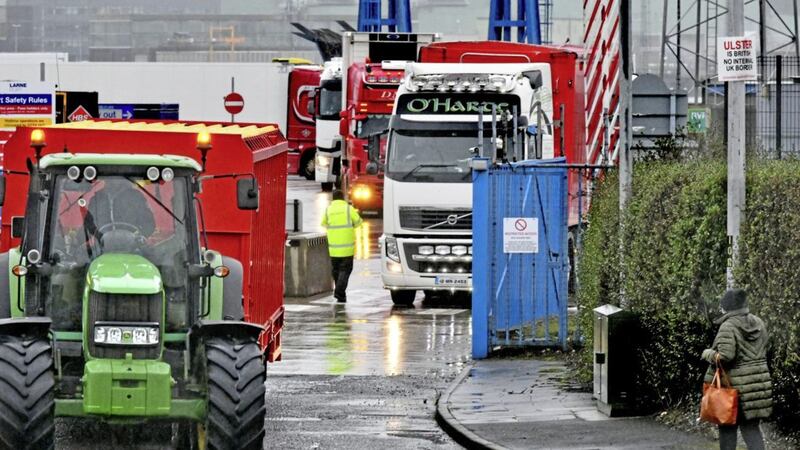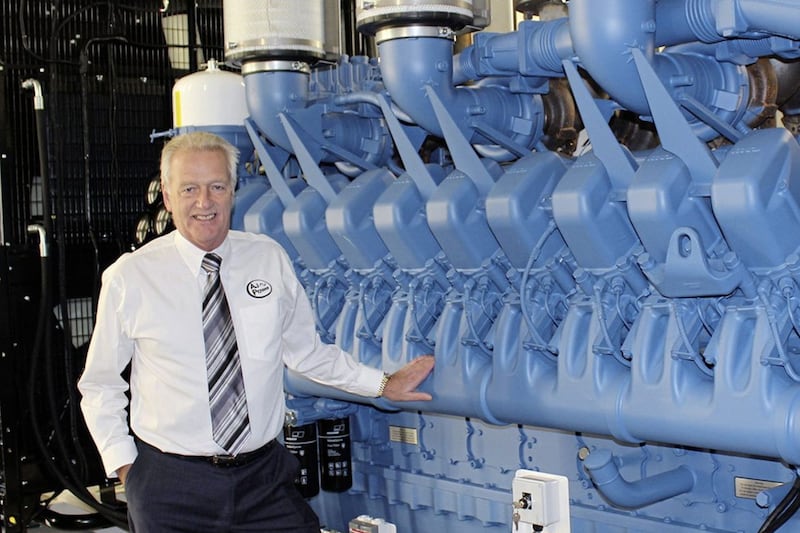THE British government's unilateral moves to delay full implementation of the protocol could make it "more tricky" to find permanent solutions to trade disruption, the EU has said.
The European Commission did not rule out ultimately agreeing to the extension of protocol exemptions announced by the UK this week, but it said those decisions should only be taken on a joint basis.
The warning came as the British government eased another element of the contentious Brexit arrangements governing trade to Northern Ireland.
A ban on importing plants potted in soil from Britain to the region has been temporarily lifted.
While most agrifood goods are, or will be, subject to extra regulatory processes to enter the north under the terms of the protocol, some have been banned altogether, including plants or vegetables potted in British soil or with traces of soil still attached to them.
The move came at the end of a week in which London also unilaterally extended grace periods that currently limit regulatory checks on imports of agrifood retail goods and customs declarations on parcels sent to the region from Britain.
The British government action came as the European Commission confirmed that preparatory work on legal action against the UK was continuing.
Commission spokesman Eric Mamer said if the EU was to demonstrate flexibility on protocol issues, the UK had to demonstrate it was prepared to implement commitments it had already agreed to.
Prior to this week's controversy, the commission had already expressed concern that border control posts at the north's ports were not yet fully operational and the EU had been unable to access UK IT systems to monitor protocol compliance.
"We are looking to the UK to respect and to implement those commitments," said Mr Mamer.
Fellow commission spokesman Daniel Ferrie told a media conference in Brussels that engagement to finding resolution was still ongoing.
"We're working together in a constructive manner with the UK to find a solution to the issues that we're currently facing," he said.
Mr Ferrie said that the EU showed a "huge amount of constructive flexibility" when agreeing to the initial protocol grace periods last December.
"Even if you look back to the last joint committee meeting, which was only last week, the UK again committed jointly to implement in full the protocol on Ireland and Northern Ireland, and again we reiterated that we were willing to find solutions to some of the outstanding issues," he said.
"For that, I think Vice President (Maros) Sefcovic said this is a two-way street – that requires the UK also to do its side of its implementation. And for that we will be following that extremely closely."
Mr Ferrie insisted the commission was aware of the issues the protocol was causing for some businesses in Northern Ireland.
DUP leader Arlene Foster said the EU had taken a "very belligerent approach" to the difficulties caused by the protocol.
She said "something had to give" but was "not entirely surprised" by the EU's threat to take legal action.
"It was quite clear to me that there wasn't going to be a meeting of minds, so the UK government was going to have to take action, given that the grace period for goods in terms of supermarkets ended at the end of this month," she told the BBC.
Mrs Foster said the protocol was damaging the Good Friday Agreement and "disproportionately" protecting the single market.
She said it appeared to her from the recent talks between the two sides that the European Union's answer to the concerns was "more protocol".
Meanwhile, the White House has again stressed the support of new US President Joe Biden for the Good Friday Agreement which the protocol is intended to protect.
Press secretary Jen Psaki said the accord was the "bedrock of peace, stability and prosperity for all the people of Northern Ireland".






